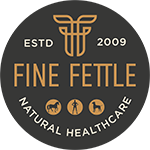In this feature, we invite experts to answer your burning questions – please email us at nutrition@equiads.com if you have an equine nutrition enquiry. (Your questions may be shortened to fit the available space.) This month, Keith Foster of Fine Fettle Products shares his expertise
Q) I have heard that charcoal can benefit laminitis-prone horses – is this true and how does it help?
A) Laminitis, while a multi-factorial condition, is linked to toxicity. As part of the laminitic process, blood vessels within the horse’s hoof constrict and dilate, thus inhibiting blood flow through the capillaries and leading to the accumulation of toxins within the bloodstream, and specifically within the hoof capsule. It is thought that the periods of increased blood flow to the foot lead to a higher concentration and greater exposure to trigger factors such as acids and toxins within the bloodstream.
When the various laminitic factors occur, a chain of events leads to catastrophic changes to the bonds that link internal tissues to the hoof wall. However, it is possible to help prevent these changes. Natural charcoal is widely used to help keep horses’ metabolic systems healthy; it works by carrying oxygen into the horse’s system and adsorbing the toxins that have accumulated. For laminitic horses, or those prone to the condition, charcoal can be used on an ongoing basis to dispel toxins from the hoof capsule and elsewhere in the bloodstream. A consequence of this is that pH balance is restored.
The feed additive Happy Tummy from Fine Fettle Products consists entirely of specially-treated hardwood charcoal from sustainable sources, and has a singular affinity for removing poisons. It has no medicinal properties, but simply binds itself to and removes toxins. In addition to benefitting laminitis-prone horses, it also addresses the causes of other metabolic conditions such as gastric issues and tying-up, by removing toxins and intestinal gases.
Q) Which herbs are good for horses?
A) Many types of grass, herbs and some leaves are all part of a horse’s natural diet, plus a lot of quite ‘woody’, fibrous stems of hardy perennials. However in recent times, we’ve seen a dramatic decline in our semi-natural lowland grassland. Many former flower-rich hay meadows and pastures have now been replaced by lush green fields dominated by perennial rye grass. These lush swards are high in protein and fructan, a key contributor to laminitis. Meanwhile, constant cropping of land and the use of chemical fertilisers reduces the amount of micro-nutrients that healthy soils possess. So, our horses’ access to herbs has greatly diminished.
In terms of recommending specific beneficial herbs, here are some of the main ones:
- Hawthorn – blood pressure normaliser, heart tonic and heart-beat regulator.
- Cleavers – rich in silica; increases production of white blood cells; has an antibiotic action.
- Meadowsweet – analgesic, anti inflammatory and antacid properties. Helps address gastric ulceration.
- Nettle – rich in Vitamin C and iron. Anti allergic; a circulatory stimulant.
- Plantain – reduces inflammation of mucus membrane; antibiotic and cooling actions – may reduce overproduction of mucus in respiratory conditions.
- Dandelion – the leaves are a natural diuretic, while the root is specific for the digestive system; a gentle laxative.
Fine Fettle Products has sourced a range of natural, organically grown herbs such as the above for their Full Spectrum herbal feed supplement. Racehorse trainer Scott Dixon is a fan of the blend for his string of performance equines, and says that quite apart from the benefits of the individual herbs as an additional source of nutrition, the fabulous smell aids palatability. “It ensures that even the most picky of eaters and those tired after a strenuous day and a long journey tuck in to their feeds with relish“.
*This is taken from a past feature which appeared in Equi-Ads magazine but is relevant now as we are in Spring with new grass available.




